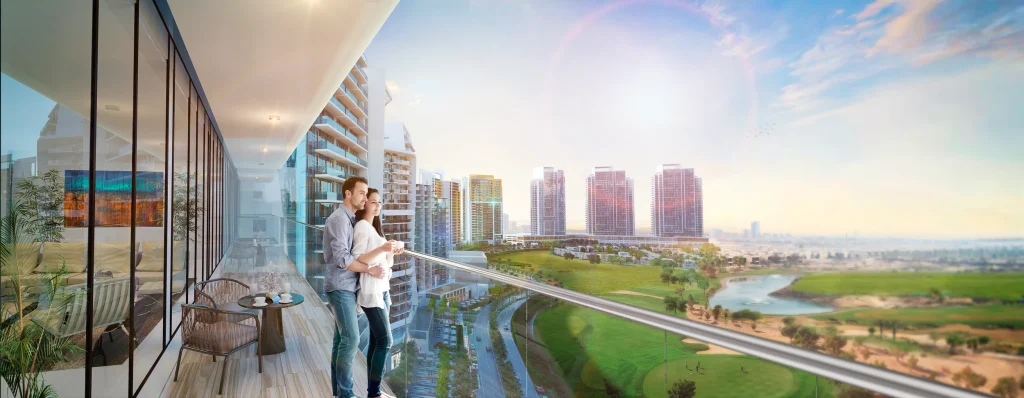In 2025, the Dubai government opened additional freehold areas for international buyers. Neighborhoods like Al Wasl, Meydan, and Dubai South now offer ownership opportunities to non-UAE residents. This expansion increases access to well-located properties near metro lines, shopping centers, and business hubs. Developers are actively promoting these areas with flexible payment plans and modern housing options. It’s an ideal time to invest before prices rise further.
Mortgage down payments must now include all mandatory fees upfront
Until recently, many buyers relied on banks to cover fees within the mortgage amount. As of 2025, the 4% Dubai Land Department fee and 2% agent commission must be paid separately. This change pushes buyers to prepare additional upfront funds before approval. It also increases transparency by showing the real cost of ownership from the beginning. Financial advisors recommend budgeting at least 7–8% extra beyond your property price.
New rules prevent off-plan sales without reaching a minimum build threshold
To protect buyers from delays and fraud, developers must complete 50% of a project before selling units. Alternatively, they must provide a government-backed guarantee covering completion risks. This law limits speculative development and strengthens trust in the off-plan market. It also reassures buyers that their investment is backed by real progress. The change is especially helpful for first-time investors unfamiliar with Dubai’s construction cycle.
All buyer payments now flow through regulated escrow accounts
Escrow accounts have existed for years, but 2025 regulations now enforce strict payment schedules. Developers are no longer allowed to collect funds directly from buyers. Instead, all payments go into licensed escrow accounts managed by independent trustees. This ensures that your money is used only for the intended project. It also creates an audit trail, which adds an extra layer of legal protection.
Foreigners buying property worth over AED 2 million now qualify for 10-year visas
Previously, most long-term residence visas were tied to employment or company ownership. In 2025, the property-linked visa program expanded. Buyers who purchase real estate above AED 2 million may now qualify for a 10-year golden visa. This applies to both residential and commercial properties, including off-plan purchases. It’s a significant benefit for remote workers, retirees, and global investors planning to live in the UAE.

Joint ownership is now officially recognized with clearer inheritance rights
Many families prefer co-investing in property, especially across generations. Dubai’s updated property law now provides stronger legal frameworks for joint ownership. In the past, legal uncertainties complicated matters when one co-owner passed away. The new system allows owners to register shares and define inheritance procedures in advance. Legal advisors recommend using this option for married couples, siblings, or business partners investing together.
Landlords can now raise rents only within revised RERA index limits
The Real Estate Regulatory Agency (RERA) revised its rent index system in 2025. Under the updated rules, landlords can only increase rent within 5–15% of the average range defined for each area. This helps prevent sudden rent spikes and protects tenants from unfair increases. If your rent is already within range, landlords may not raise it at all. This rule makes long-term leasing more predictable and secure for tenants.
Real estate agents must now hold enhanced licensing and pass annual assessments
To improve professionalism in the market, agents must now meet higher training and licensing standards. Each year, they are required to pass updated tests and ethics modules. Agencies failing to meet these standards risk penalties or license suspension. This ensures that buyers receive advice from qualified experts who understand the latest regulations. When choosing an agent, always ask to see their active RERA license.
Buyers must submit enhanced identification and proof of funds documents
In line with anti-money laundering reforms, all property buyers must now provide more thorough documentation. This includes government-issued ID, proof of income, and source of funds declarations. The process may take longer, but it helps safeguard transactions. Agents and developers are required by law to report suspicious activity. The updated rules align with international compliance standards to strengthen investor confidence.
Digital title deeds and blockchain registration systems are now mandatory
Dubai’s real estate sector continues moving toward digital innovation. In 2025, all title deeds are issued digitally and secured through blockchain platforms. This reduces fraud risks and streamlines the ownership verification process. It also allows buyers to access their records online without delays. The Dubai Land Department now processes most ownership updates in under 24 hours. This makes buying and selling property faster and more efficient.
Understanding Dubai’s new property laws in 2025 is essential before making any major investment decision. As the www.few.ae editor explains, these reforms improve transparency, buyer protection, and legal certainty across the entire sector. Whether you’re a resident, expatriate, or international investor, it’s a good time to explore Dubai’s evolving real estate landscape.
